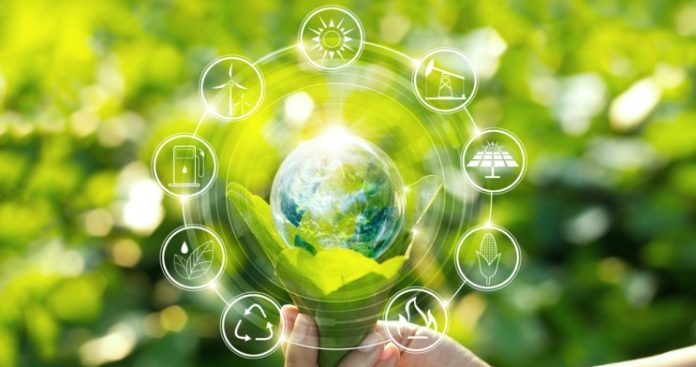- By now, it is clear that the entire global community is not only aware of the dangers of environmental degradation caused by greenhouse gases (GHG) but also is concerned about the irreversible consequences if not addressed now with all seriousness. The present and the following generations will have to be made aware of the challenges confronting humanity vis-à-vis environmental degradation concerns more emphatically. We all have witnessed erratic weather patterns leading to floods, droughts, excessive rains, heat waves, and other vagaries. The resultant unmitigated countereffects on humanity are quite telling. Of course, earnest efforts are underway to reduce the harmful effects of greenhouse gases by all the leading countries.

PC: Marc Lallanilla
- The global efforts in the form of Conference of the Parties (COPs) have yielded some results on the vexed issue but not drastic or big enough to alter the equations on the ground. Yes, fossil fuels and coal are the biggest contributors to the carbon footprints which has rightly garnered the attention of the world community. However, despite concerted efforts to phase-down coal that COP26 called for in Glasgow, it is a pronounced phase-up that the world has witnessed this year. The large disruption of conventional energy supplies by the Ukraine war has sent a country like Germany reviving coal-fired plants and China mining record volumes. Now midway through COP27 in Sharm el-Sheikh, discussions are underway yet again to move ahead.
- On its part, India has proposed that the decision text should call for phasing down all fossil fuels rather than making a villain out of only coal. This position follows from two factors. First, natural gas and oil do contribute to GHG emissions as well so don’t whitewash them. Second, India does keep being targeted for heavy coal reliance for its energy needs. Needless to mention, this targeting is hypocritical and unjust. Mind you, rich countries have failed horribly short of their commitments to help developing countries make a just transition from fossil fuels. Their historical emission contributions aside, look at the place from where these countries are asking India to clean up: US energy use per capita is 6,804 kg of oil equivalent compared to India’s 637 kg.

PC: Bilal Abdi
- Hearteningly, India is making significant investments in renewables. But geopolitical disruptions, growing summers, and also welcome reductions in poverty mean such new demands that our energy security remains dependent on coal. Thus, hastening us along the change path should be done via more finance and technology support. Moreover, India also has to navigate an internal just-transition challenge as 85% of coal production is concentrated in the relatively poor eastern and central states, while over 60% of renewable energy potential and 80% of current capacity is concentrated in relatively wealthy southern and western states. Emphasis on cleaner technologies must be harnessed in extracting and deploying by placing timelines to transitions.






